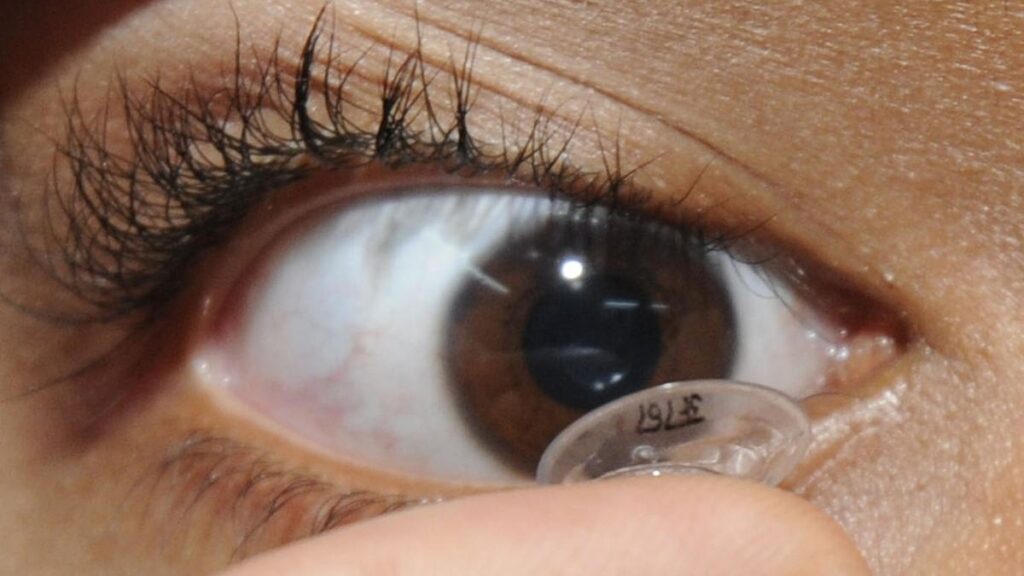970x125
As Contact Lens Health Week, marked from August 18 to 22 approaches, it is an excellent opportunity to appreciate one of the most transformative innovations in modern eye care. For millions worldwide, contact lenses are a trusted and flexible alternative to spectacles, enabling not only clear vision but also greater freedom and increased confidence in everyday life.
970x125
A lifestyle upgrade
Gone are the days when spectacles were the only solution for vision correction. Today, contact lenses offer an ideal balance between comfort, convenience, and effective vision correction. Whether you are a student, professional, sportsperson, or someone looking for a glass-free look, contact lenses can transform the way you see. Perhaps the biggest freedom is the ability to see clearly in every direction (good field of vision), something that spectacles fail to provide.
Whether you have been wearing glasses for years or are curious about switching to contact lenses, let’s learn more.
What makes contact lens so effective?
Contact lenses are thin, clear, rounded disks with curved edges placed directly on the surface of the eye. According to recent global studies, over 140 million people wear contact lenses and the number continues to grow, thanks to technological advancements and rising awareness.
Contact lenses are commonly used to treat: myopia (near-sightedness), hyperopia (far-sightedness), astigmatism and presbyopia (age-related near vision loss).
Each lens is customised based on an individual’s vision needs, eye shape, and tear film. Parameters like corneal curvature, diameter, and type of material are carefully chosen by an eye care specialist.
Today’s lenses are also relatively more breathable, moist, and user-friendly. Soft contact lenses are comfortable, easy to adapt to, and are available in daily, biweekly, or monthly disposables.Rigid gas permeable contact lenses, made of durable materials used for higher degrees of refractive errors, typically last longer, but they require a longer adaptation period.
Additionally, there are specialised options such as: Toric contact lenses for correcting astigmatism with customised power; multifocal systems of lenses offering simultaneous near and distance correction, especially for presbyopia; scleral lenses useful in dry eyes and irregular corneas, and Orthokeratology (Ortho-K) lenses designed for overnight use. These temporarily reshape the cornea and reduce daytime dependence on vision correction. Thus, there is a solution tailored for every need.
Contact lenses are also used for therapeutic benefits in conditions like keratoconus and other corneal conditions, and certain contact lenses are used as ocular drug delivery devices. Numerous clinical trials are ongoing in the realm of smart contact lenses that monitor intraocular pressure or blood glucose.
Beyond vision correction, contact lenses serve cosmetic purposes, enhancing eye colour. These lenses have to be properly fitted under the guidance of an eye care specialist, even if for cosmetic purposes.
Also Read: If your child is getting contact lenses, here’s what you need to know
Best practices for safe use of contact lenses
Always wash and dry your hands before handling contact lenses.
Don’t stretch the life of your lenses. Strictly adhere to the recommended wearing schedules.
Avoid sleeping in lenses unless advised by your eye doctor.
Never rinse and store the lenses in tap water/any other unspecified agent.
Schedule regular ophthalmologic checkups, especially for long-term wearers.
These practices can go a long way in preventing infections and promoting long-term eye health.
The first step however, must always be a comprehensive eye examination. This is an essential step before starting contact lens use. Your doctor will assess factors such as corneal shape, tear quality, and your lifestyle to recommend the best lens type for you. Safe and successful lens wear depends on proper hygiene, regular checkups, and patient education.
This contact lens week, let’s not celebrate the lenses: let’s celebrate the clearer, brighter lives they help us lead. Good vision isn’t just about seeing the world -it’s about seeing the best version of yourself.
(Dr. Nagalakshmi N. is with the department of ophthalmology, Naruvi Hospitals, Vellore. nagalakshmi.n@naruvihospitals.com)
Published – August 04, 2025 06:06 pm IST
970x125

